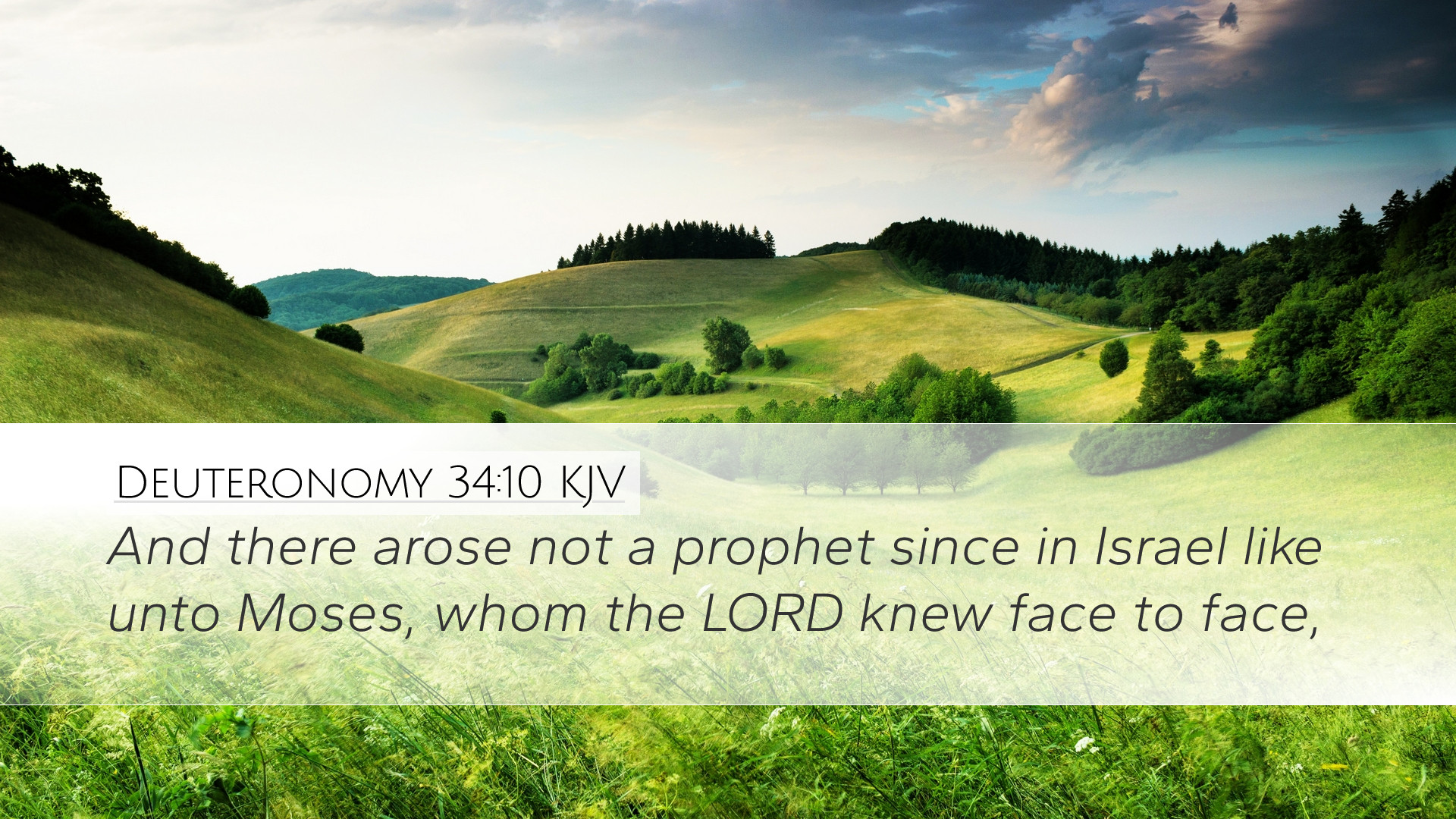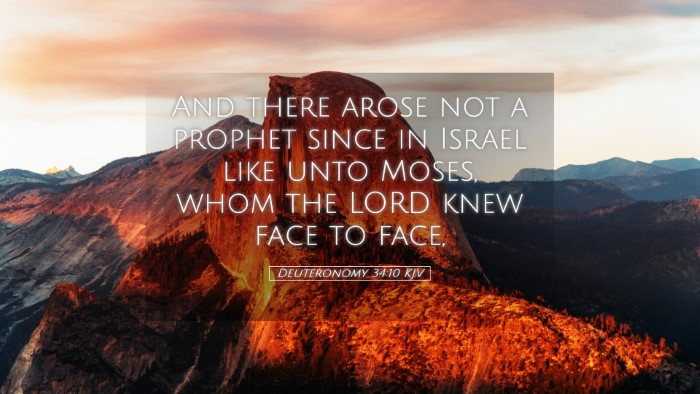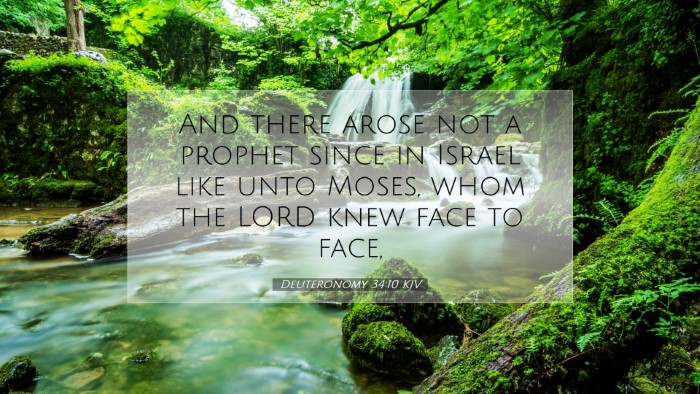Bible Commentary on Deuteronomy 34:10
Verse (Deuteronomy 34:10): "And there arose not a prophet since in Israel like unto Moses, whom the Lord knew face to face."
Introduction
This verse marks a significant conclusion to the life and ministry of Moses. It praises his unique relationship with God and distinguishes him from all other prophets who followed. The insights gleaned from public domain commentaries, such as those of Matthew Henry, Albert Barnes, and Adam Clarke, provide a multi-dimensional understanding of this pivotal moment.
The Uniqueness of Moses
Matthew Henry highlights the unparalleled role of Moses in Israel’s history. He was not just a leader but a man of deep communion with God. Henry points out that Moses is highlighted as a prophet, receiving revelations from the Lord, in a manner far superior to subsequent prophets.
Albert Barnes emphasizes that Moses' direct communication with God set a standard that no other prophet could reach. His intimate encounters are exemplified in various moments throughout Exodus and Numbers, indicating a relationship that exemplified the essence of prophecy.
The Face-to-Face Relationship
Moses’ relationship with God is referred to as "face to face," a phrase that suggests a profound level of intimacy and understanding. Adam Clarke elaborates on this metaphor, discussing how such an interaction implies a deep trust and openness – something that characterized Moses' leadership and ministry.
- Divine Communication: Moses received the Law directly from God, possessing unique qualifications as a mediator between God and Israel.
- Personal Revelation: The nature of Moses’ revelations surpasses that of subsequent prophets, as God spoke to him freely and clearly.
- Symbol of Mediation: His role foreshadows the complete revelation found in Christ, making him a pivotal figure in biblical theology.
The Legacy of Moses
Henry points out that Moses left a legacy that shaped the identity of the Israelites. His writings not only transmit God's laws but also establish a covenant relationship that is central to the Old Testament narrative.
Barnes contributes to this discussion by illustrating how Moses’ leadership model sets the stage for future prophets, albeit none performed miracles or led the people in the same capacity. His legacy provisions the collective memory of Israel, influencing their worship and obedience to God.
Implications for Theology
From a theological standpoint, this verse serves multiple purposes. Clarke discusses the implications of Moses’ unique role, noting it prepares the way for the New Covenant in Christ. Just as Moses mediated between God and the Israelites, Jesus serves as the ultimate mediator, providing a new paradigm of relationship with God.
Application for Today
The insights from this verse can be applied to modern faith. Reflecting on Moses’ unique relationship with God can inspire personal devotion and deeper communion with the Divine.
- Encouragement for Prayer: The direct engagement Moses had with God encourages believers to seek intimate prayer lives.
- Leadership Model: Moses serves as a model for spiritual leaders today, illustrating humility, obedience, and faithfulness in service.
- Understanding God's Word: The significance of the Law given through Moses emphasizes the importance of scripture in the life of a believer.
Conclusion
Deuteronomy 34:10 encapsulates the essence of Moses’ prophetic ministry and his unparalleled relationship with God. The reflections from Matthew Henry, Albert Barnes, and Adam Clarke articulate a theology that spans historical and contemporary contexts. As one considers Moses’ legacy, they are prompted to not only admire what God accomplished through him but also aspire towards a greater intimacy with the Lord characterized by trust, obedience, and a commitment to personal and communal faith.


